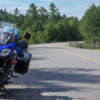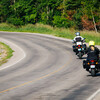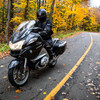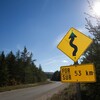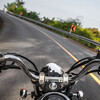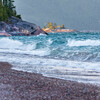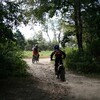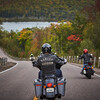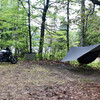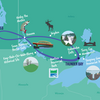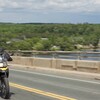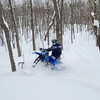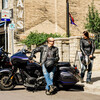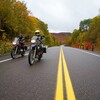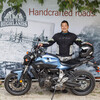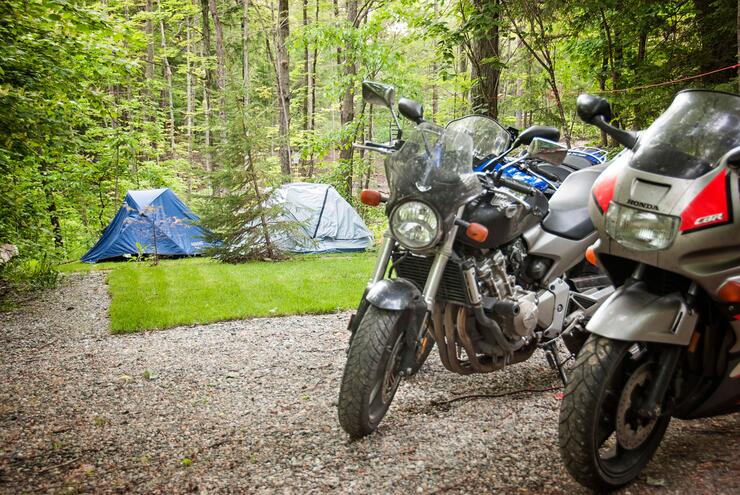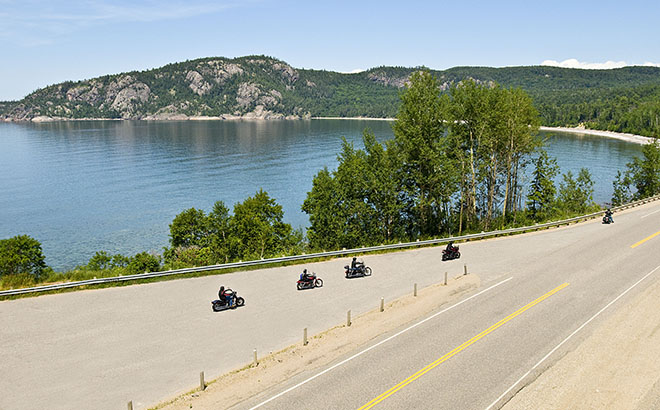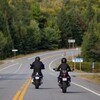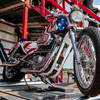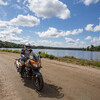
Biking on a Budget
Before heading out on a motorcycle road trip, the first thing I do is walk out to the tree in my backyard and pull off a few $100 bills. If those haven’t ripened yet, some $50 or $20 bills do just fine.
Oh, you don’t have tree with an endless supply of cash?
Good news: you don’t have to sacrifice fun to save money. Some of my best memories are the people I’ve met on the road, or places I’ve found by accident or as directed by locals. But how much money can you save? You might be surprised.
There are six main categories of spending on a road trip:
The Basics
This is stuff you already have—like a well-maintained bike with good tires, chain, recent oil change, lots of “meat” still on your brake pads, etc. You don’t want to pay for an expensive tow and repair on a road trip which would eat into your travel plans (yup, speaking from experience here).
You don’t need expensive purpose-built aluminum side panniers to travel. Canoe dry bags will keep your things dry and can be held in place with bungee cords or bungee nets.
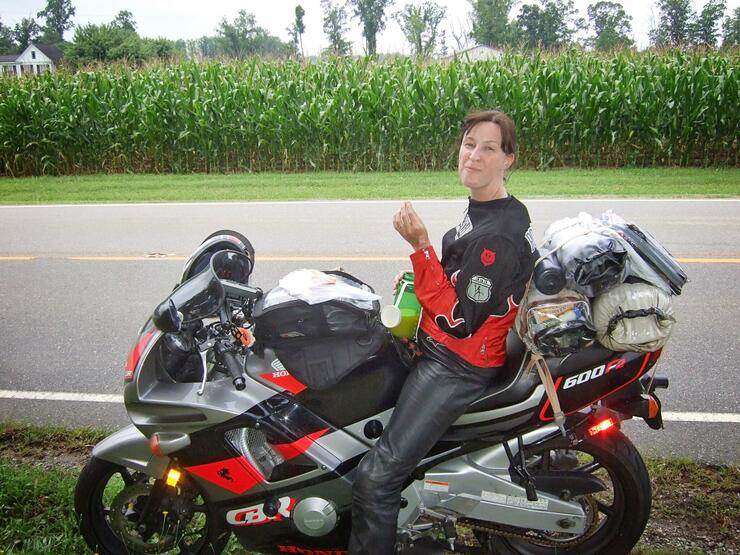
Canoe dry bags and bungee cords are an inexpensive and effective way to pack your belongings on a road trip.
Full protective riding gear and rain gear are also prerequisites for any multi-day trip. Should you have a mishap on the road, protective gear could make the difference between showing up late and showing up at the hospital. As for the rain gear, there is no bad weather, just bad clothing choices. Donning a garbage bag under your jacket does not look cool, and will not keep your crotch from getting cold and wet (again, speaking from experience).
Your Roadside Assistance plan gives peace of mind and usually will cover tows (check your plan).
Fuel
Being a motorcycle, this is the least of your costs. Plus, the fun part is actually riding your bike (unless you like to just stand around and pose). You could always tame your wrist to save the fuel—but to me, that’s like going to a hockey game and not watching the fights.
Accommodations
This is a biggie. You can stay in five-star hotels the whole time if you’re posh and need fluffy slippers and robes. But a motel will do just fine for a bed to sleep in, and hot running water for showers. They are usually located in more remote areas, not just urban centres like most fancy hotels.
Airbnbs can save you money, but are typically not available in remote areas.
Another option is to bring a tent and camp. There are plenty of National or Provincial campgrounds to camp in, and most will have washrooms with showers. Plus, camping is just fun! (Learn more about camping with your motorcycle here.) Private campgrounds are an option too, and may be better situated for your route.
Accommodations costs can be cut in half or more by sharing with the people in your riding group (this is true for many expenses). If asked, some hotels and motels provide a cot (a folding bed) for free, or for a nominal fee. Check with the campground to see if there are any limits on the number of people or tents per site.
For the more adventurous, ask locals where they go camping in the area, or in the direction of your next spot.
Food
This can be a touchy subject as some people have dietary restrictions. If you’re eating out, the standard approach is to save your leftovers for tomorrow’s lunch. You can also order your food to go, saving a few dollars on gratuity. Pro tip: meals without meat, fish, or eggs last longer, which makes a difference when packed up in your luggage riding in the heat of a summer’s day.
If you’re camping, you can bring your own food and cook it at your site. You can make and bring your own camping meals instead of buying expensive prefab freeze-dried camping meals (see references). Or, pick up fresh provisions as you go from local grocery stores.
I also always pack protein bars, which fill the hunger gaps between meals and are a good excuse to stop and rest my butt.
Water is important too, so instead of buying bottled water, I refill my water bottles and hydration pack for free. Most fast food places with fountain pop allow you to do this. Pro tip: On the hottest days, put water and ice in your hydration pack! By not buying bottled water, you don’t have to worry about the garbage and are saving the planet from plastic bottles.
Attractions
When in a new area, it can be nice to visit local attractions; however, don’t feel you have to visit every one. Often local museums are free or very affordable. Learning the history of the area will help you appreciate it even more.
There are often free alternatives as well. Talk to locals like a waiter or wait staff, or people at the gas station. Take what the hotel desk tells you with a grain of salt, as they are sometimes compensated by local tourist attractions. Short hikes and swimming holes are great to get your blood flowing, and you might be rewarded with a great view.
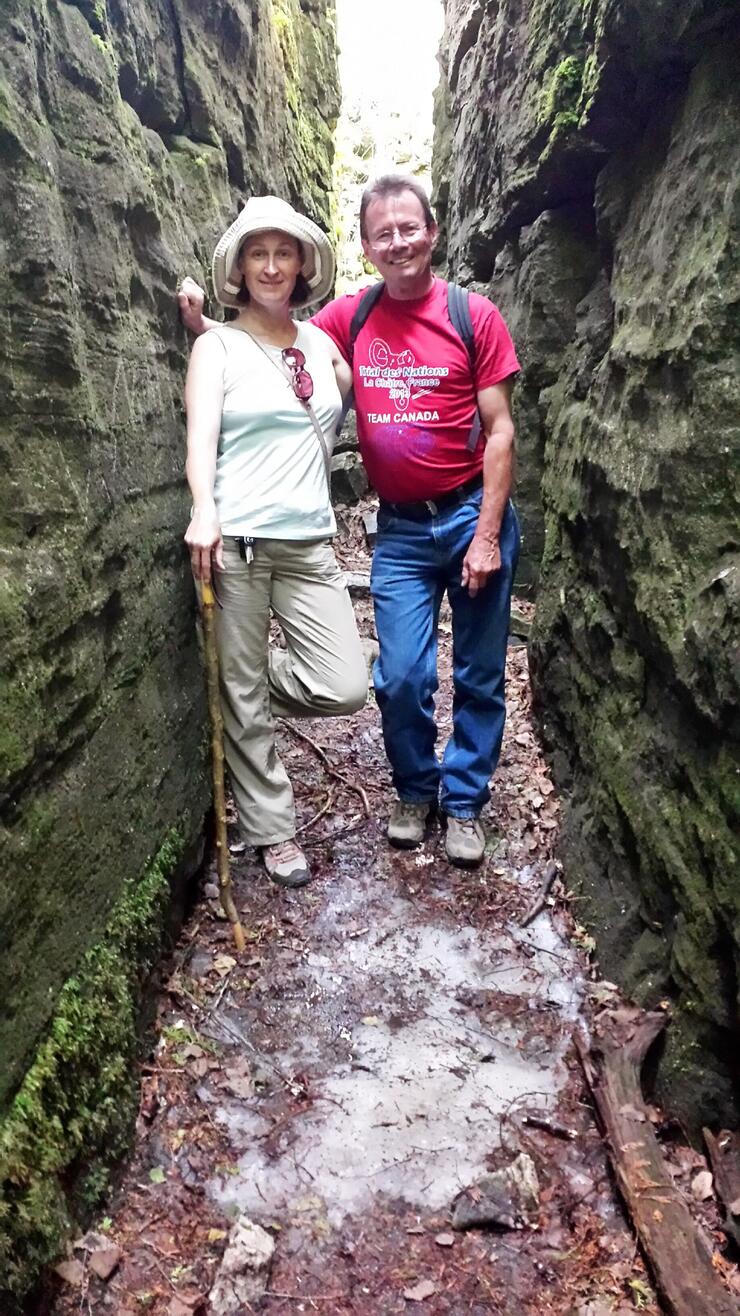
Miscellaneous
These are things like souvenirs, clothes, laundry, replacing things you’ve lost, and of course, emergencies. For souvenirs, I don’t usually have a lot of spare room so I prefer stickers instead of that intricate glass sculpture. If you’ve packed correctly, you won’t need clothes, but I’ve been known to get a t-shirt as a souvenir.
Laundry is unavoidable on medium to long trips, but you can bring your own detergent, fabric softener, and dryer sheets. No matter how well you keep track of things, sometimes the world steals things from you (like the time my rain jacket fell off my bike on a bumpy road even though it was packed underneath a bungee net). And despite the most meticulous plans, you can’t plan for most emergencies. The best you can do is carry a credit card.
So even if you don’t have money growing out of a tree, you can still have a lot of fun on a motorcycle road trip on a budget. After all, the best things in life are free.
References
Camping meal prep ideas:
- Trail Recipes
- Mom’s Goes Camping
- Motorcycle Travel Snacks
- Fresh Off the Grid backpacking recipes including many dietary restricted
General resources for motorcycle travel on a budget:
- Minimalist Motorcycle Vagabonds (MMV) facebook group
- Motorcycle Camping facebook group
- Vagabondesss budget traveling – I also wrote about her here
- Zee Traveler
Accommodations:
- Tent Space on ADVRider for active members of this forum. Be a good steward and offer some space if you’re able
- Horizons Unlimited People Willing to Help!
- Bunk A Biker Canada Facebook group
- Freecampsites.net website
- iOverlander – also has apps on Android and iOS
- Couchsurfing – also has apps on Android and iOS
Recommended Articles

Bucket List Motorcycling in Ontario, Canada 2026
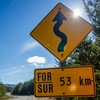
Ontario's Best Twisties: Five Roads to Get Your Lean On
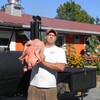
The Big Belly Tour—A Complete List of Ontario's BBQ Joints
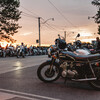
It's Bike Night in Ontario 2024
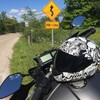
Ontario's Top Twisties
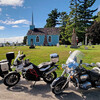
Have You Ridden Canada's OG Highway? Here's Why Every Rider Needs to Hit Up Historic Highway 2
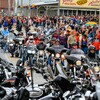
23 Amazing Photos That Prove PD13 Is Still The Best Motorcycle Event Ever
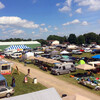
Motorcycle Swap Meets in Ontario—The Complete List for 2025
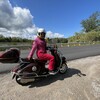
And a Vespa shall lead them all...
